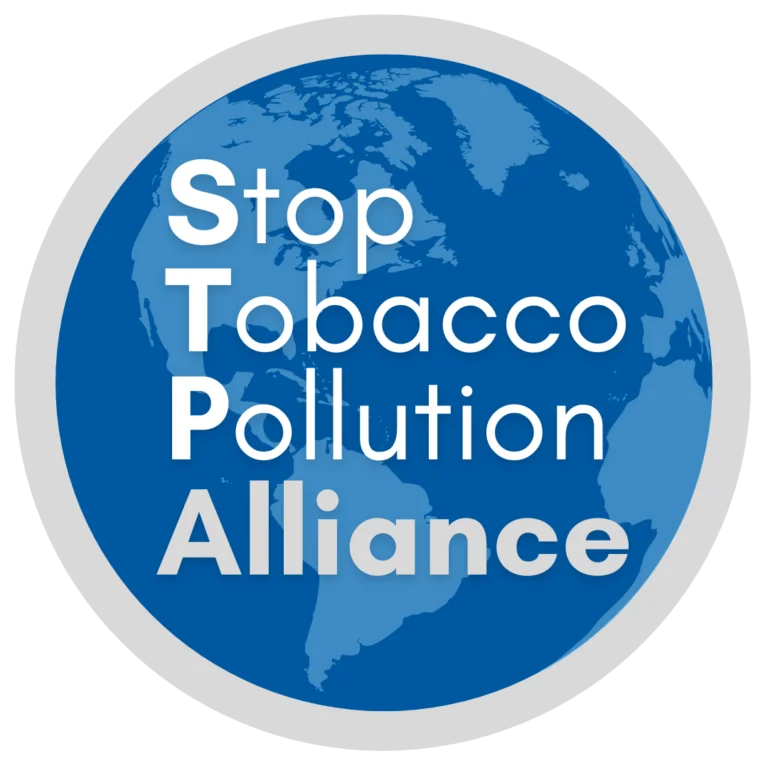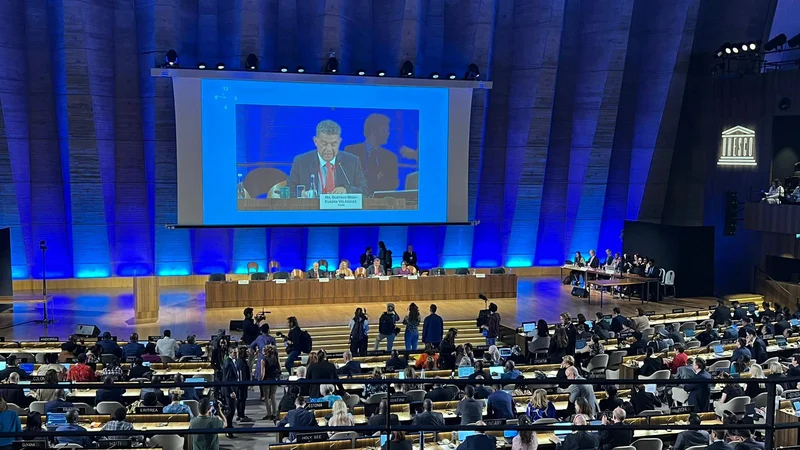Towards a treaty on plastics
A text currently being discussed internationally should result in a ban on certain plastics, particularly those for single use or those with no proven need. Tobacco-control circles hope to see cigarette filters included.
In March 2022, 175 United Nations member states adopted a resolution in which they committed to developing an international treaty to end plastic pollution by the end of 2024.[1] Among them, more than 90% had already taken measures to prohibit single-use plastics (straws, bags, disposable cutlery, etc.). Switzerland is not one of them, but the canton of Geneva recently adopted a new law which will ban them in the food industry from 2025.[2]

The plastics treaty has already resulted in three rounds of negotiations – in Uruguay in November 2022, in France in May and June 2023, and in Kenya in November 2023. The last session attracted 1,900 delegates representing 161 nations, including Switzerland. A first draft of the treaty was the outcome. The next session will take place in Canada in April 2024, followed by a final meeting in South Korea in November 2024. The delegates must then have agreed on a final text to be adopted and ratified immediately at a diplomatic conference in early 2025.[3]
For tobacco control circles, the objective is clear. “We would like to see cigarette filters, which are single-use plastics, banned under this treaty,” notes Chris Bostic, director of public policy for Action on Smoking and Health (ASH), who attended the negotiation sessions.
This could be done through a list published as an annex to the treaty, which would detail and prohibit “non-essential and avoidable” plastic products, he believes. “We cannot put medical supplies, which are necessary for patients, in the same category as cigarette filters, which have no use for anyone,” he specifies.
In addition to the benefits for the environment, such a measure would have the effect of promoting smoking cessation. “We did a study in which 42 smokers swapped filtered cigarettes for unfiltered cigarettes,” explains Thomas Novotny, a public health and environmental specialist at the University of San Diego (US), who focuses his research on tobacco. After several weeks, most reported smoking less each day because the experience was less satisfying.”
In the Netherlands, 12% of smokers surveyed indicated that they would be ready to stop smoking or smoke less if filters were banned, 16% would smoke cigarettes without filters, 18% would switch to rolled cigarettes with a reusable filter, and 6% would use electronic cigarettes.[4]
If the plastics treaty were to ban cigarette filters, it would be a global first. But the idea has already been considered by several countries. New Zealand considered it in 2021 as part of a law intended to promote smoke-free environments. In April 2023, the Belgian Superior Health Council recommended that the government introduce such a ban.[5]
The same month, the Netherlands promised to seek to ban cigarette filters when the European directive on single-use plastics is revised in 2026. “The Netherlands, France, and Ireland have begun exploratory discussions to form a coalition for this purpose,” underlines Lilia Olefir, who heads Smoke Free Partnership, an NGO coalition, and is following this issue closely.
For anti-smoking organisations, the plastics treaty should also contain provisions on “extended producer responsibility”. “Currently, we have a situation where tobacco companies cause pollution but the bill falls to municipalities and therefore ultimately to taxpayers,” points out Thomas Novotny. “We must reverse this logic.”
The costs incurred are numerous: the collection of cigarette butts in public spaces, the cleaning of pipes clogged with tobacco residues, the remediation of the damage caused to ecosystems, the management of the health impacts of this pollution, and the loss of income for businesses and industries. such as tourism or fishing. affected by a polluted environment.[6]
An “extended producer responsibility” system is already in place in many countries for goods with a high potential for toxicity such as batteries, fluorescent bulbs, paint, or electronic products. The consumer pays a “pollution” tax at the time of purchase and the seller systematically takes them back, then recycles or disposes of them in an ecological manner when they reach the end of their life cycle.
For an “extended producer responsibility” scheme to work, however, we must prevent the tobacco industry from taking it over. It must therefore be “obligatory, not voluntary” and implemented by an independent third party to prevent tobacco companies from using it for communication purposes, estimates Stop Tobacco Pollution, an alliance of around 100 organisations fighting against pollution caused by cigarettes, including AT Switzerland.[7]

Opening of INC-2 in Paris
European programs implemented in the wake of the EU directive on single-use plastics have not followed these precepts and now serve as a promotional platform for the tobacco industry. In France, the eco-organisation for the reduction of cigarette butts in public spaces (Alcome), responsible for collecting cigarette waste from municipalities, has a website on which it highlights its links with tobacco companies and the role played by the latter in the design of its programmes.[8]
San Francisco, California (USA) adopted another model. Calculating that cleaning up cigarette butts from the roads costs approximately $5.6 million per year, in 2009 the city introduced a special environmental tax of $0.20 on packs of cigarettes sold within its perimeter. [9]Revised upward over time, the tax is now $1.50.
A handful of African countries, including Gambia, Chad, and Benin, have also introduced an ecological tax on packets of cigarettes sold locally. It varies between 0.4% and 4.2% of the total sales price.
The plastics treaty will undoubtedly encourage the recycling of plastic goods and the development of biodegradable products. But cigarette filters must be excluded from these provisions, anti-smoking circles believe. “To set up an effective recycling programme, we would have to find a way to collect the billions of cigarette butts scattered in nature, which must be treated as hazardous waste because of the toxic products they contain,” explains Chris Bostic. “We would then have to find a way to extract these harmful substances, then transform them into a reusable material.” This involves using a pyrolysis process, a chemical decomposition process requiring high heat. The method is expensive, difficult to implement on a large scale, and energy intensive.[10] At most, the collected butts could be used as construction material, as long as they are encapsulated in wax or bitumen to prevent them from spreading the nicotine and heavy metals they contain.[11]
As for biodegradable filters, they are nonexistent. “The tobacco industry has been talking about it for decades but up to now, it has not managed to develop them in an efficient and commercially viable way,” notes Debbie Sy, in charge of strategic affairs for the Global Center for Good Governance in Tobacco Control. The rare attempts have resulted in cellulose filters, which degrade in 2.3 to 13 years in the environment, compared to 7.5 to 14 years for plastic-based filters.[12]
Ms Sy specifies that even if a biodegradable filter were to see the light of day, it would remain toxic because it is impregnated with the many harmful substances produced by tobacco smoke. Paradoxically, it could even encourage more littering of cigarette butts into the environment. At a discussion session held by British American Tobacco with smokers, one participant said he would like to see the introduction of a biodegradable filter because it would allow him to “throw them on the ground without feeling guilty”.[13] Such an innovation would also contradict Article 13 of the WHO Framework Convention on Tobacco Control, which prohibits the introduction of attractive new features in the design of cigarettes.
These positions, the opposite of those defended by the tobacco industry, should be the subject of intense lobbying in the coming months as the plastics treaty begins to come into sharper focus.
[1] https://www.un.org/en/climatechange/nations-agree-end-plastic-pollution
[2] https://www.letemps.ch/opinions/geneve-pionnier-suisse-linterdiction-plastiques-usage-unique
[3] https://www.unep.org/inc-plastic-pollution
[4] https://www.frontiersin.org/journals/public-health/articles/10.3389/fpubh.2023.1282655/full#ref71
[5] Ibidem
[6] https://tobaccocontrol.bmj.com/content/20/Suppl_1/i36
[9] https://tobaccocontrol.bmj.com/content/20/Suppl_1/i36
[11] https://ggtc.world/library/tobaccos-toxic-plastics-a-global-outlook
[12] Joly, François-Xavier, and Mathieu Coulis. “Comparison of cellulose vs. plastic cigarette filter decomposition under distinct disposal environments.” Waste management (New York, N.Y.) vol. 72 (2018): 349-353. doi:10.1016/j.wasman.2017.11.023
[13] https://www.industrydocuments.ucsf.edu/tobacco/docs/#id=rkjp0061